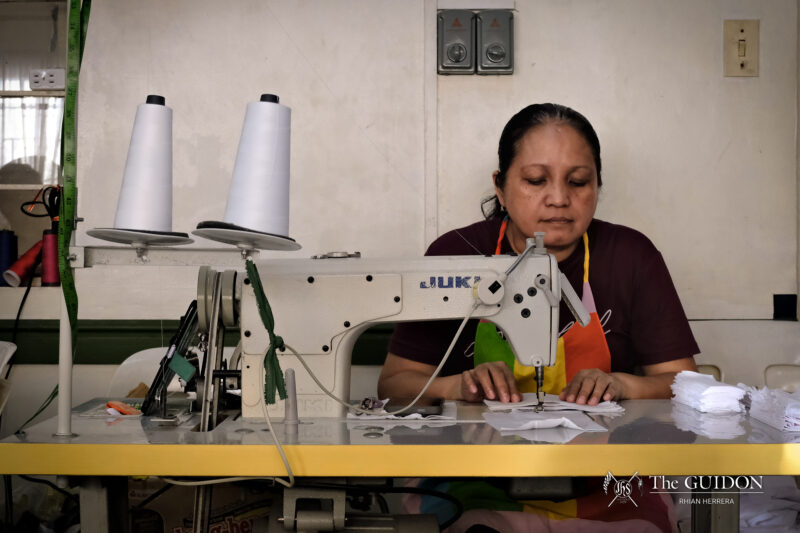We hit those lulls in school work, a string of distractions come along, and the next thing we know, we are one day away from a deadline for a project that takes a month to do. Naturally and instinctively, we cram and do away with precious hours of sleep for a requirement’s sake.
Maybe we are too preoccupied with the work at hand to think twice about sleep deprivation. Sleep is the enemy and that is that. Sleep deprivation is so commonplace in college that we just accept it.
So I have decided to propose an experiment, though some will argue that it qualifies more as some third rate corporal punishment. To better see the effects of sleep deprivation on one’s functionality, I set off to isolate the sleep deprivation variable for the duration of 72 hours. In other words, I won’t sleep for three days.
Dr. Agnes Remulla, an EENT (ears, eyes, nose, and throat doctor) and sleep disorder specialist, says it is possible. She says, “People remain relatively functional with minimal sleep but this is neither favorable nor encouraged.”
Without favor or encouragement and a long weekend ahead, I set off to deprive myself of sleep.
Day one
I wake up at 7:30 am on a Friday and I enjoy the comfort of my bed while I can. The day will be pretty uneventful, except that there is a Math midterm exam.
Fourteen hours after—around 9:30 pm—I have survived staying awake but the mind-numbing midterm aftermath did not help. My head feels light and my body feels heavy. But I am too peeved at my inability to graph circles to make too much of a big deal about it.
It is now 1:30 am, my 18th hour, and as I predicted, my eyelids start to get heavy. Perhaps what Dr. Michael Sarte told me about “sleep debt” is already starting. Sarte is the unit head of The Medical City’s Center for Snoring and Sleep Disorders.
“Losing more sleep, you build what we call a debt,” says Sarte. “It’s called a sleep debt and the accumulation of sleep deprivation leading to a certain debt which eventually you have to pay off.”
That means I have to play my cards right to get through this. Do I reach for the coffee now? I decided not yet. I save my caffeine and sugar rations for later on when I would surely need them. Worst case scenario is I get strung out from caffeine and then crash once my sleep debt piles up. As for now, an action movie and a cold shower will have to do.
Day two
It is around 10:30 am and I am sitting in my doctor’s office for a quick check up. Everything turns out fine and I am given the green light to proceed but not without a little lecture. As she goes on about case studies and related literature, I experience the effects of sleep deprivation she is talking about.
While trying to keep my eyelids apart, I listen to my doctor’s advice. But I am not able to pay attention long enough to decipher more than five words at a time.
I use context clues and the tone of her voice to draw a conclusion. Ironically, she mentions something about lack of focus and concentration.
Indeed, the effects of sleep deprivation make even the most simple thought processes laborious. Sarte says effects range from initial irritability, to possible loss of memory, and problems in cognition.
In more extreme cases, Sarte says, “Your decision-making process can be altered, your judgment can be altered, and later on we’re already talking about possibly immunologic and cardiovascular [risks].”
I am on my 43rd hour and killing time becomes a chore. I then decide to resort to coffee. Paired up with a Tarantino blood bath of a movie, the caffeine works like a charm. The planets align and my mojo is flowing. By some mystical inexplicable miracle, I am wide awake.
Most treat coffee as the trustworthy upper that will keep them awake, supplying that much needed energy to get those last three thousand words down. “I’ll take coffee if I know I can sleep the next day,” says Roel Mendoza (III AB IS), who admits to losing one to three days of sleep to video editing. “If I take coffee, [I’m] ok, but I think to myself, ‘After this I will die.’”
Sarte explains, however, that scientifically, staying awake with coffee is just a matter of having an effective—albeit unhealthy—stimulant. “Number one [stimulant] is bright lights followed by loud sounds. Chemically, [it is] coffee; second, cigarettes.”
Having remembered that caffeine is closely related to nicotine, I thought to myself, so much for my mojo.
Day three
It is 6:30 am and I only have 13 more hours to go. My thoughts are a mess of one-dimensional concerns like “Should I shower?” or “What is that noise?” Any thoughts deeper than that and I lose track of myself. I let my head droop down and then I yank it back up in an effort to stay awake. I do this over and over, reducing myself to a gigantic novelty bobble head.
My eyes are killing me so I give myself a 15 minute break and close my eyes with my iPod on full blast. And then I open my eyes—two hours later than I planned.
It feels good to get even only two hours of rest after 60 consecutive hours of staying awake. I keep myself awake for the last 11 hours, not for the sake of the experiment but more for my ego. 70 out of 72 hours does not sound too bad, I thought. Besides, I seem to be doing fine.
But Remulla says, “Sleep debt will eventually catch up on your physical and emotional well-being. At first you think you are coping well but you will eventually suffer from its effects.”
That statement basically sums up my three-day stint. Accumulated sleep debt did for a fact catch up to me. And yes, I did suffer from its effects.
The breakdown
The whole experience turned out to be a lot more painful than I first anticipated, considering I expected it to be rather excruciating.
I remember my editor’s half-amused tone when I first proposed my experiment as he replied, “Uh… No.” Even to this day, the sleep jokes from my oh-so supportive family have not died down. They still remind me of the blank expression I wore for those three days.
What remained, too, was my feeling compelled about this topic. That is, compelled to prove that there is more to sleep deprivation than textbook answers.
But then I was told: “The condition under which you choose to lose sleep or justify its intent is purely a personal one,” says Remulla. “The decision is always up to you. Just be prepared for its possible consequences.”
I do not want to be the do-gooder boy scout who has to say this but do save yourself the anguish of sleep deprivation. In the end, perhaps it is just best to learn to manage your time better. For those who do not know yet, trust me, it is not fun.






